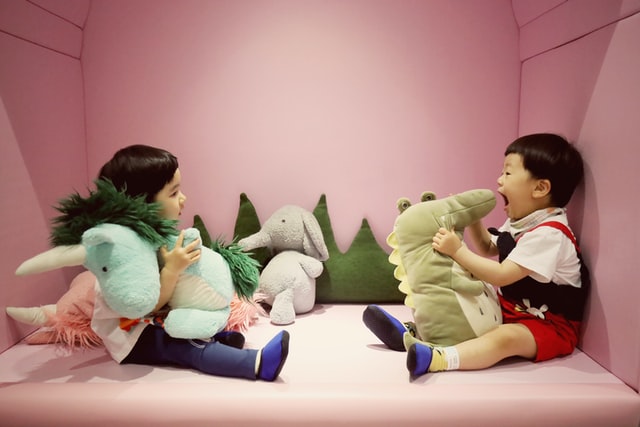Storytelling and creativity are as important as ever
Storytelling and play are paramount for learning at all ages.
Storytelling is a powerful tool when it comes to effective learning. Stories are memorable, engaging and can evoke emotional responses. Likewise, creativity has long been regarded as an important part of learning – promoting innovation, problem-solving skills and improved wellbeing. Several CMC sessions threw light on the importance of storytelling and creativity, both during the current pandemic and in response to other crises.
Exploring difficult topics through storytelling
The Question time panel (mentioned in blog 2) discussed how the pandemic has been an opportunity to reassess our values. Storytelling and play are paramount for learning at all ages; indeed, Ollie Bray, a Global Director for Lego, explained how imagination and creativity help to build resilience, and that we need to encourage that within safe environments.
Imagination and creativity help to build resilience – we need to encourage that within safe environments.
Storytelling is a particularly useful tool for engaging people during crises and enabling children to explore and understand difficult situations. Russell T Davies described how programmes like Byker Grove and Grange Hill often explored very difficult or controversial topics – such as child abuse and homelessness – providing a safe space for young people to learn about such things. More recently, books like Onjali Q Raúf’s The Boy at the Back of the Class are engaging children in issues such as the refugee crisis and enabling parents and teachers to broach topics that are difficult for them to speak about.
CMC’s Masterclass session about Moomins and Pippi Longstocking also touched on the importance of storytelling during and post-crises.
The two Nordic classics are celebrating their seventy-fifth anniversary this year, but they were originally created in the wake of World War II, and used to help re-educate children about ‘normal’ life (outside of war) and their respective national cultures. They each used storytelling to present these ideas and characters, giving children (and adults) not only entertainment, but lessons about their cultural values.
Pippi and Moomins were important tools to help re-educate children after WWII.
The joy of storytelling
As well as providing a vehicle for conveying educational messages and exploring controversial subjects, storytelling also plays a large role in our creativity. This year’s Creative Keynote from Waterstones Children’s Laureate Cressida Cowell championed children’s aptitude for and enjoyment of storytelling. We often see posts advocating the need to get children reading, but we also need to encourage them as writers and creators:
“Part of my job is to kickstart children’s creativity”
Cressida Cowell, Warterstones Children’s Laureate
We need to make sure that children can unleash their creative instincts.
With limited access to schools and libraries during the pandemic, Ms Cowell wants us to ensure that children can unleash their creative instincts. Beyond lockdown, all children should have access to creative pursuits, even if that only means allocating 15 minutes in the school week to tap into children’s potential and grant them time to get creative.
As with the Changemakers, it is important to make children agents in their own education, enabling their creativity and engagement in storytelling. Exploring new ideas and values through play and storytelling can open up the discovery of whole new worlds.
The CMC
The Children’s Media Conference is the UK’s largest gathering of children’s media experts and enthusiasts, drawing a crowd from children’s TV and film, radio, gaming, publishing, and tech. This year, Oriel Square’s Hannie Kirkham produced a session for the CMC’s Learning Strand, focusing on the ways in which brands have responded to the Covid-19 lockdown and what that has meant for their educational content and engagement.
The Conference, usually hosted across several venues in Sheffield, has honed the balance of insightful panels, collaboration opportunities and a good dose of fun. Although this year has forced the production team to migrate the conference online and explore a whole new way of working, they have still managed to incorporate all of those elements. This year’s content was also thoroughly relevant to current events and ongoing issues that are so prevalent for young people.
If you’re interested in finding out how Oriel Square can deliver or help you plan effective and engaging online conferences, training sessions, events or communities, please get in touch. You can find us on Twitter, Facebook and LinkedIn @OrielSquare.

